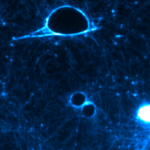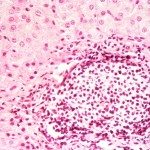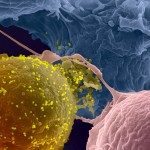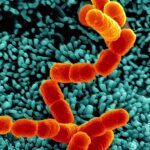Lien vers Pubmed [PMID] – 35769882
Lien DOI – 10.1016/j.isci.2022.104537
iScience 2022 Jul; 25(7): 104537
The development of anti-infectives against a large range of AB-like toxin-producing bacteria includes the identification of compounds disrupting toxin transport through both the endolysosomal and retrograde pathways. Here, we performed a high-throughput screening of compounds blocking Rac1 proteasomal degradation triggered by the Cytotoxic Necrotizing Factor-1 (CNF1) toxin, which was followed by orthogonal screens against two toxins that hijack the endolysosomal (diphtheria toxin) or retrograde (Shiga-like toxin 1) pathways to intoxicate cells. This led to the identification of the molecule C910 that induces the enlargement of EEA1-positive early endosomes associated with sorting defects of CNF1 and Shiga toxins to their trafficking pathways. C910 protects cells against eight bacterial AB toxins and the CNF1-mediated pathogenic Escherichia coli invasion. Interestingly, C910 reduces influenza A H1N1 and SARS-CoV-2 viral infection in vitro. Moreover, parenteral administration of C910 to mice resulted in its accumulation in lung tissues and a reduction in lethal influenza infection.













